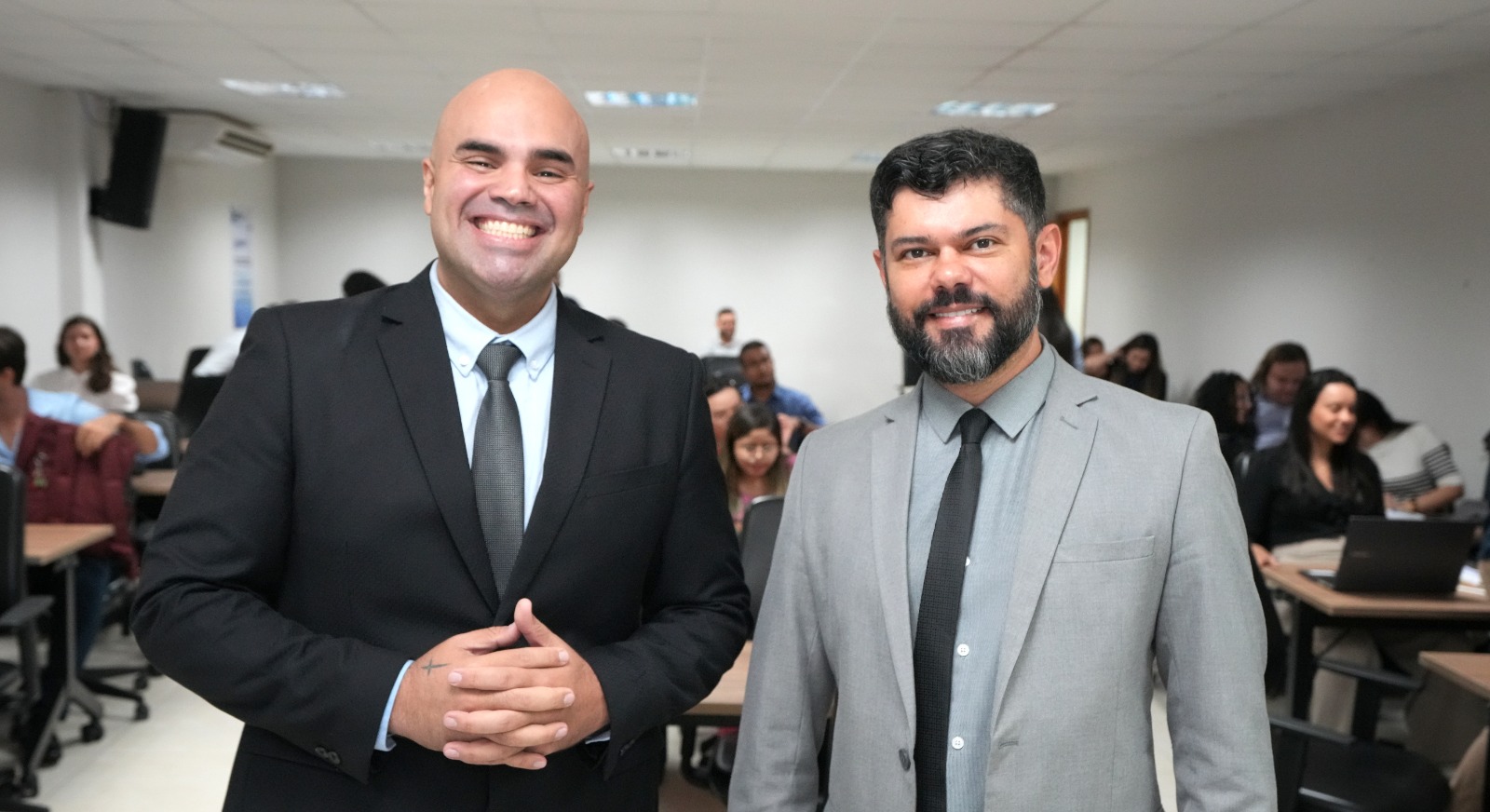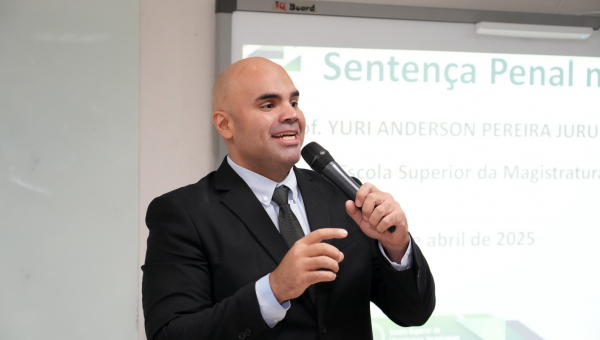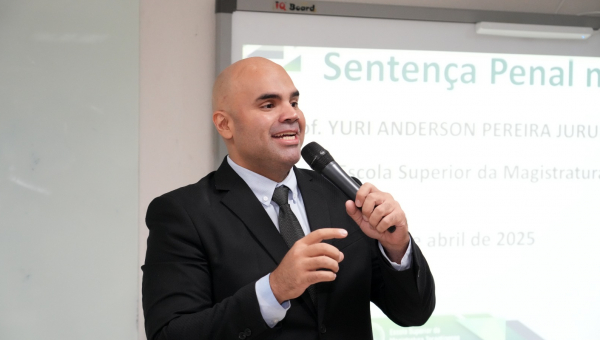
After the holiday, the week at the Superior School of the Judges of the State of Tocantins (Esmat) began again with training and practice. Beginning on Tuesday morning (April 22nd), the course on Criminal Sentencing in Practice was attended by advisors from the Judiciary of the State. The training continues until Friday, April 25th, and it has a class load of 16 hours, in person.
Coordinated by Judge Wellington Magalhães, the course is taught by Yuri Anderson Pereira Jurubeba, PhD, and it aims to align the construction and analysis of criminal sentences, addressing essential theoretical aspects and their practical application.
For the coordinator, training is essential to ensure better-founded, safer decisions that are consistent with the principles of the due process of law. According to the magistrate, “drafting a good criminal sentence requires more than knowing the formal structure. You need to understand the elements of the case, interpret the rules with certainty and justify each decision clearly and in line with the precedents. Practice helps make this part of everyday legal reasoning,” he said.
The course is structured in two modules: the first, focused on the general elements of criminal sentencing, works on topics such as prescription, materiality, authorship, dosimetry of the sentence, substitution for restrictive sentences, sursis and the effects of conviction. The second module focuses on the practice of criminal sentencing on four fronts: property crimes (robbery and theft), sex crimes, drug trafficking and domestic violence.




_thumbnail_thumbnail.jpeg)
_thumbnail_thumbnail.jpeg)
_thumbnail_thumbnail.jpeg)

_thumbnail.jpeg)
_thumbnail.jpeg)
_thumbnail.jpeg)

